Reviving Effective Teaching: Lessons from the Pedagogy of Messenger of Allah ﷺ
The 21st century showcases remarkable progress, where there's a widespread desire for instant gratification and accessing everything with ease. The predominant trend is the integration of the internet into every aspect of society and the deep incorporation of digital tools into education, bringing about a transformative shift in the global landscape. The fusion of Artificial Intelligence, Augmented Reality, Automation, Robotics, Virtual Reality, and similar technologies has brought about a revolution in the field of education. However, even with this profound transformation, there are still countries where education has not become a fervent pursuit for all individuals. For instance, India is now dumped into rat and rote learning tactics where students mugs-up the entire textbook without any understanding and ever emphasized remembering contents of the book or documentation rather than developing their logic, thinking, and intuition. Memorization has become the key to top the exams. As an example, consider India, where educational practices often involve the memorization of entire textbooks devoid of comprehension. The focus leans heavily towards recalling specific content or information from books and materials, rather than nurturing skills related to critical thinking, logical reasoning, and intuitive understanding. The primary approach to excel in exams has shifted towards memorization. Moreover, it's not only India; places like Pakistan, Bangladesh, and many countries in Sub-Saharan Africa lack support for creativity. This is quite different from Scandinavian countries like Finland, New Zealand, and Switzerland, where they use more inventive methods.[1]
Therefore, as the world seeks effective teaching approaches, it's worthwhile to look back to a time of limited knowledge. During this era, Prophet Muhammad ﷺ emerged as a teacher who remarkably transformed a community of uneducated and basic individuals into a highly virtuous group, ultimately enabling them to become influential educators for the rest of the world. This community engaged in prolonged conflicts over seemingly trivial issues, even spanning generations. Their descendants carried on these disputes without considering the root causes. However, when they encountered the universal Messenger ﷺ, a profound change occurred within them. They evolved into a group that garnered global admiration for their culture, and the Muslim world held them in high esteem for effectively disseminating the message of Islam worldwide.
The first revelation upon the Messenger of Allah ﷺ and humanity was to pursue education and acquire knowledge. The first five verses that Allah the Almighty revealed upon His Messenger ﷺ in Surah Al-'Alaq were: Proclaim! (or read!) in the name of thy Lord and Cherisher, Who created- Created man, out of a (mere) clot of congealed blood: Proclaim! And thy Lord is Most Bountiful,-He Who taught (the use of) the pen,-Taught man that which he knew not.[2] Over the years, the Messenger ﷺ applied this divine commission in his teachings and transactions and completely transformed this community, who once had completely engulfed in the abyss of darkness, into a well-equipped civilization and culture, having a deep understanding of all sort of manners and etiquettes.
The prime ground upon which the Messenger of Allah ﷺ pulled off this stupendous achievement was the unique teaching mechanism. Before putting things into perspective, he always applied or took the other person’s point of view into consideration. No matter how the questions were, he always kept the answering mentality and that too in a unique way. With his prescient nature, he always varied the response to the same question looking at the context of the situation or as per the mind-set of the enquirer. Upon being asked for the best deed in Islam, for instance, the Messenger of Allah ﷺ proposed the act of Jihād sometimes, attendance of Ṣalāt sometimes, and love and compassion of mother sometimes. Therefore, it would be worth looking at what was the teaching mechanism of Messenger of Allah ﷺ and how did he kept the ambience of his classes always high. It has been reported in numerous hadith that in the classes of the Messenger of Allah ﷺ, the companions used to sit in a way as if they have birds in their heads.[3]
Here, we would be looking at the ways the Messenger of Allah ﷺ kept his pedagogy effective and kept his companions intrigued throughout his class.
Use of Examples
Modern educationists claim that one of the best methods of teaching is giving examples, as examples are easily stuck in mind and stay there much longer. This is why children at their early age are taught with the help of examples and stories. The Messenger of Allah ﷺ too followed this technique 1400 years back. There are several instances where the Messenger ﷺ gave examples to make things easy and understandable. Once the Messenger ﷺ while giving an example of significance of the prayers five times, said: "If there was a river at the door of anyone of you and he took a bath in it five times a day would you notice any dirt on him?" They said, "Not a trace of dirt would be left." The Prophet (ﷺ) added, "That is the example of the five prayers with which Allah blots out (annuls) evil deeds."[4]
In another occasion, the Messenger of Allah ﷺ gave the example of Muslims as one body, saying: "The believers in their mutual kindness, compassion and sympathy are just like one body. When one of the limbs suffers, the whole body responds to it with wakefulness and fever"[5] There are various such hadith like the hadith of backbiting, the hadith of jealousy and many more which were used by the Messenger ﷺ while giving lessons and teachings to his companions and the companions find them easy. Modern psychology is in favour of using such examples because they (examples) relate to people in some way and thus they (people) tend to be more effective and efficient in conveying messages to expected audiences.
Story-based lessons
It is true to the most extent that students love to listen to stories. In order to catch the attention of the companions, the Messenger of Allah ﷺ too used to narrate stories along with adding morals and values of them. It is to be borne in mind that the Messenger ﷺ used to narrate only the stories which had messages in them or the Messenger ﷺ wanted to connect them to some valuable hadith or points.
Once, the Messenger of Allah ﷺ narrating numerous ways of doing good things, said: "While a man was walking on his way he became extremely thirsty. He found a well, he went down into it to drink water. Upon leaving it, he saw a dog which was panting out of thirst. His tongue was lolling out and he was eating moist earth from extreme thirst. The man thought to himself: 'This dog is extremely thirsty as I was.' So he descended into the well, filled up his leather sock with water, and holding it in his teeth, climbed up and quenched the thirst of the dog. Allah appreciated his action and forgave his sins". The Companions asked: "Shall we be rewarded for showing kindness to the animals also?" He (ﷺ) said, "A reward is given in connection with every living creature".[6] In the narration of Al-Bukhari, the Prophet (ﷺ) is reported to have said: "Allah forgave him in appreciation of this act and admitted him to Jannah".
Likewise, another story can be found about a woman of Banū Israel. In this story, the Messenger of Allah ﷺ said: "Once a dog was going round the well and was about to die out of thirst. A prostitute of Banu Israel happened to see it. So she took off her leather sock and lowered it into the well. She drew out some water and gave the dog to drink. She was forgiven on account of her action."[7] These stories show how our classes can be effective if we use them. So, in history classes, for instance, we can narrate stories that would add value to our class of history and in doing so, we would give them some moral values through these stories.
Demonstrative Method
Demonstration is one of the methods that receivers/students often love to have, as it eases up things for them. In schools, this demonstrative method is being used a lot for better understanding of students. In prophetic teachings, this practice of demonstrative method can be seen widely. Not just that, he used to also demonstrate practices like ṣalāt, wuḍū, and so forth before the companions to make things as easy as possible. In a hadith reported by Sahl bin Sa’īd, the Messenger of Allah ﷺ said: "I will be like this in Jannah with the person who takes care of an orphan". Messenger of Allah (ﷺ) raised his forefinger and middle finger by way of illustration.[8] On another occasion, the Messenger of Allah ﷺ said in another hadith reported by Abu Huraira (r.a.): "I have been sent and the Hour (is at hand) as these two (fingers).[9] Here too the Messenger ﷺ indicated with his index and middle fingers- so, how much more(in length) is one then the other.
Not just that, the Messenger of Allah ﷺ also used drawing to clarify the concepts. Once the Messenger ﷺ illustrated about the length of life and how a person’s aspirations increase as he becomes old. 'Abdullah bin Mas'ud narrated "The Messenger of Allah (s.a.w) drew a square line (on the ground) forus, and in the middle of the (square) line he drew another line, and he drew another line going out of the (square) line.Around the one that was in the middle, he drew (various) lines. Then he said: 'This is the son of Adam, and this is his life-span encircling him, and this one in the middle in the person, and these lines are his obstacles, if he escapes this one, this one ensnares him, and the line extending outside is his hope.'[10] Here, the Messenger ﷺ taught the companions concepts with illustration or the demonstrative method, which unlike any normal explanation is more effective in its essence as well as influence.
Repetitive Method
One more method or technique that the Messenger of Allah ﷺ used in his teachings is repetitive method. Actually, this method was used by the Messenger ﷺ to accentuate the matter in its own sense so that the companions would know the significance of the matter to act upon it or refrain from it, but it helped the companions to learn the matter in an effective way. In a hadith reported by Abu Huraira, the Messenger of Allah ﷺ said: "By Allah, he is not a believer! By Allah, he is not a believer! By Allah, he is not a believer." It was asked, "Who is that, O Messenger of Allah?" He said, "One whose neighbour does not feel safe from his evil."[11] Here, the Messenger ﷺ repeated it to showcase the significance of the matter. Talking about this repetitive method of the Messenger ﷺ Anas bin Mālik said: the Prophet (ﷺ) used to repeat his words thrice so that the meaning thereof would be fully understood, and whenever he came upon a gathering of people, he would greet them. He would repeat Salam thrice.[12]
Conclusion
In conclusion, it's important to acknowledge that certain countries, notably India and those in Sub-Saharan Africa, are struggling to formulate effective educational strategies. To instigate a transformation in our educational landscape, revisiting the teaching methods employed by Prophet Muhammad ﷺ becomes imperative.
Furthermore, the educational endeavors of the Messenger of Allah ﷺ ignited such inspiration in his students that they were willing to journey from Egypt to Iran and Yemen to Caucasia, spreading the knowledge they gained from him. In the following centuries, people from various traditions, conventions, and cultures – like Persians and Turanians, Chinese and Indians, Romans and Abyssinians, Arabs, and even some Europeans – embraced Islam enthusiastically. This transformative influence extended not only within his immediate vicinity but also reached regions such as Syria, Iraq, Persia, Egypt, North Africa, and Spain. In Kufa, Abdullah bin Masood was dispatched as a teacher, resulting in the emergence of eminent figures in jurisprudence, including Alqama, Ibrahim Al-Nakawi, Hammad Ibn Abu Sulayman, Sufyan-Al-Thawry, and notably Abu Hanifa, the pioneer of the largest Islamic legal school, Hanafi.
Western intellectuals like Isaac Taylor, Robert Briffault, John Devenport, M. Pickhtall, P. Bayle, and Lamartine acknowledged that the Messenger ﷺ appeared among wild and primitive people. They consumed alcohol, gambled, and indulged in adultery without shame. Prostitution held legality, and pervasive conflict was commonplace. But fortunately, he succeeded to eradicate all kinds of atrocities and immoralities and what were prevalent in pagan society and replaced them with such enduring values and virtues that led his people to become esteemed leaders and educators of the civilized global community.
References
Maryam Ansar, Teaching strategies of Prophet Muhammad (PBUH), At Understand quran academy
Dr, Rifai, Teaching pedagogies of the Prophet Muhammad (PBUH), social science research network, 2021
By Stephen Noonoo, Why Scandinavian schools are superior (and what we can learn), June 18, 2015
By Stephanie Brink Harck, The Scandinavian Education Systems: Education with human values, Scan Magazine
Arun Kumar is an economist, Education in India at 75: The Challenges Facing the System, Students and Teachers, The wire
S Halwani, 12 Prophetic methods of education, onislam.net, 05, 2104
Zin Eddine Dadach, 6 Teaching Methods of Prophet Muhammad, Islamic city, 6, 2023
Ustaz Muhammad Abdul Mateen Bin Hisham, Prophet Muhammad s.a.w. as a Teacher, Muslim.Sg 2021-09-02
Hacer ÂŞIK EV, Learning-Teaching Methods of The Prophet Muhammad (P.B.U.H.), The Journal of International Social Research,
Bishap Gultekin, The Educational Methods of Our Prophet (PBUH), The Pen
Endnotes
[1] By Stephanie Brink Harck, The Scandinavian Education Systems: Education with human values, Scan Magazine.
[2] Holy Quran: 96/01-05
[3] Abu Dawood, h.4753
[4] Sahih al-Bukhari 528, b.9, h.7
[5] Sahih Al-Muslim, 2586
[6] Riyad as-Salihin 126
[7] Sahih al-Bukhari 3321, b.59, h.127.
[8] Riyad as-Salihin 262
[9] Sahih al-Bukhari 6505, b.81, h.91.
[10] Jami` at-Tirmidhi 2454, b.37, h.40.
[11] Riyad as-Salihin 305
[12] Riyad as-Salihin 852, b.5, h.9
About the author
Rajib Shaikh is a degree final year student at Darul Huda Islamic University. He can be contacted at rajibmahi89@gmail.com
Disclaimer
The views expressed in this article are the author’s own and do not necessarily mirror Islamonweb’s editorial stance.

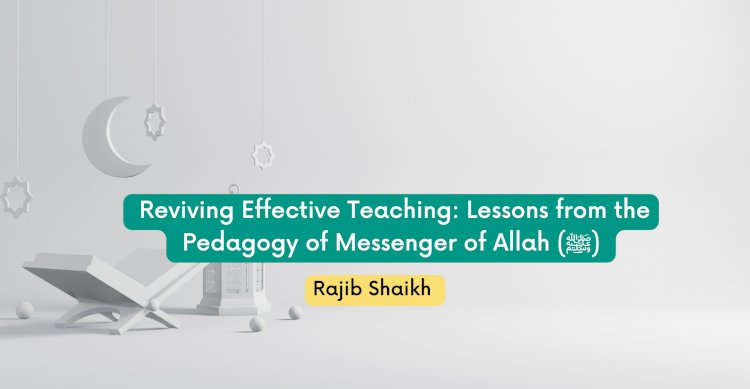


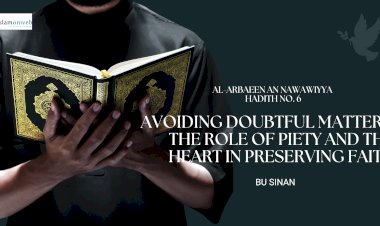
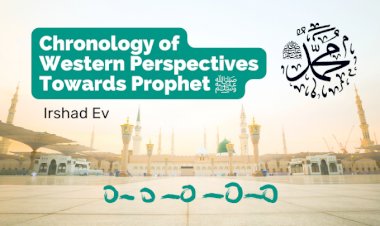
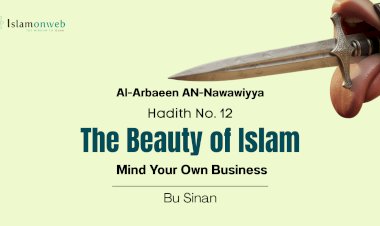
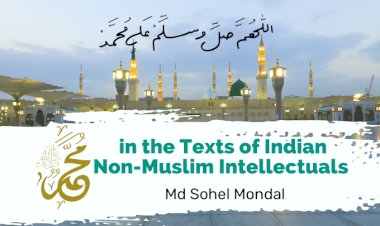
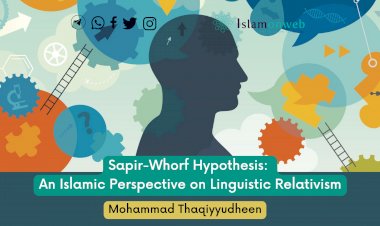
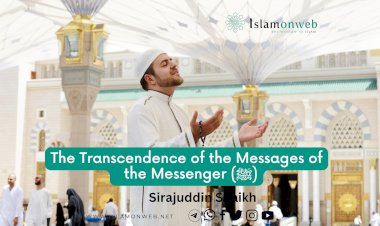














Leave A Comment